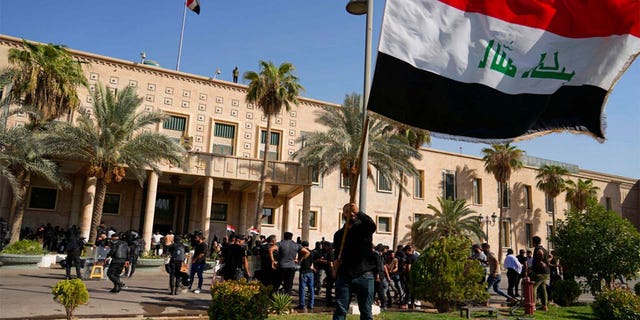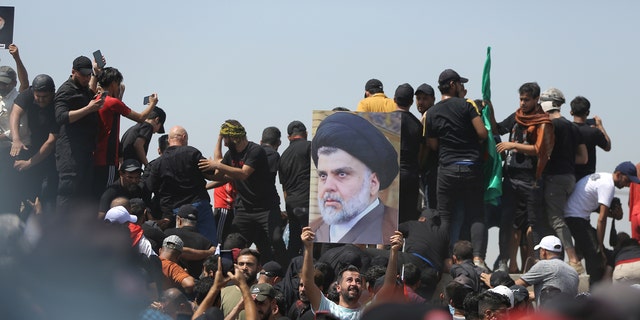Baghdad, Iraq violence leaves at least 30 dead, cleric tells protesters to withdraw
At least 30 were confirmed dead in Iraq Tuesday as fighting continues in Baghdad following the resignation of a top Shiite leader Monday.
Gun fire has continued to ring out in the nation’s capital as leaders grapple with Iraq’s greatest political crisis since the U.S. invasion in 2003.
Protests once again erupted in Iraq’s Green Zone – the center of Iraqi government offices and foreign embassies – after Muqtada al-Sadr said he had had enough of politics and stepped down from his cleric role.
GUNFIRE STRIKES IRAQ’S GREEN ZONE DURING VIOLENT PROTESTS
His resignation has sparked violent protests from his supporters who stormed the presidential palace Monday, just one month after they rushed the parliamentary building and held protests outside the Supreme Judicial Council demanding the dissolution of parliament and early elections.
Nationwide curfews were enacted this week and al-Sadr on Tuesday called on his loyalists to leave the Green Zone as more than 400 people have been injured as his supporters trade heavy fire with Iraqi security forces.
Iran announced border closures in an effort to prevent the chaos from creeping across its shared border with Iraq and Kuwait called on its citizens to leave Iraq immediately.
The violent protesting stems from 10-months of political unrest after al-Sadr’s party won the largest share of parliamentary seats in the October 2021 election, but failed to secure the government majority.

IRAQ PROTESTS: MULTIPLE DEATHS, DOZENS INJURED AFTER HUNDREDS STORM GOV’T PALACE, CLASH WITH SECURITY FORCES
The result has pushed Baghdad’s politics into a scene of fractional paralysis and infighting between Shiite political leaders.
Roughly two-thirds of Iraqi’s are Shiite while a third are Sunni – who lost political dominance after the U.S. toppled the Saddam Hussein regime.
But infighting amongst the Shiite majority has increased in recent years as Iranian-backed Shiites and Iraqi-nationalistic Shiites have vied for power.
Al-Sadr – who is supported by Iraqi nationalists and some of nation’s poorest that were oppressed under the Hussein regime – refused for months to negotiate terms with his Iran-backed Shiite rivals.

But on Tuesday he attempted to lower the temperature and urged his supporters to leave the Green Zone and stop all violent activity.
“This is not a revolution,” al-Sadr reportedly said in a televised address.
The Iraqi military also said it would end its curfew in the hopes it would halt all violence in Baghdad.
The Associated Press contributed to this report.
Read the full article Here


